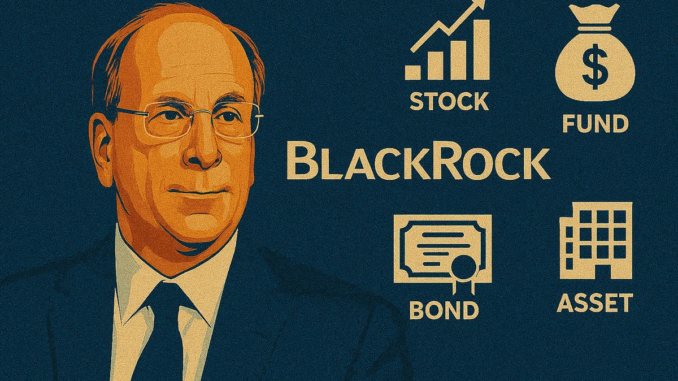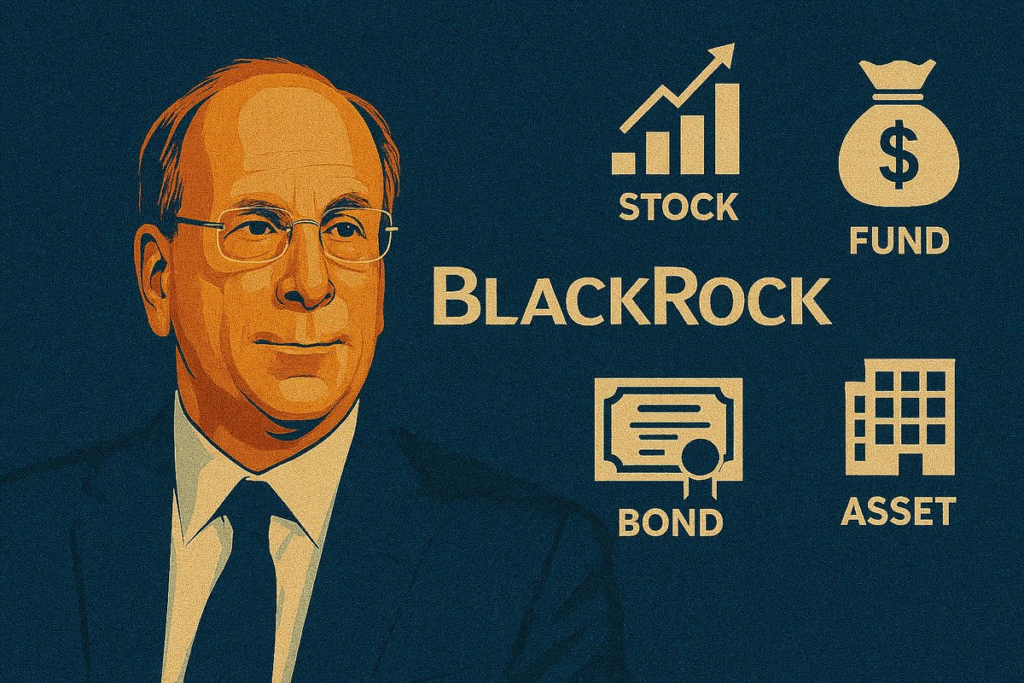
BlackRock CEO Larry Fink Says “Every Stock, Every Bond, Every Fund, Every Asset Can Be Tokenized”
In a groundbreaking statement that is set to reshape the future of investing, BlackRock CEO Larry Fink recently announced that “every stock, every bond, every fund, every asset can be tokenized.” His bold prediction highlights the transformative potential of blockchain technology and digital assets in the financial markets. Fink’s comments are expected to influence both traditional investors and innovators in the fintech space, marking a significant moment in the ongoing evolution of global finance.
The Power of Tokenization: A New Era for Assets
Tokenization refers to the process of converting real-world assets, such as stocks, bonds, and other financial instruments, into digital tokens on a blockchain. These tokens represent ownership and can be traded, transferred, or leveraged in a secure, transparent, and efficient manner. By doing so, tokenization allows for fractional ownership, enabling broader participation in markets that were once inaccessible to many due to high barriers to entry.
Fink’s statement comes as blockchain technology and cryptocurrencies gain traction as potential solutions to long-standing inefficiencies in the financial sector. While Bitcoin and other cryptocurrencies have already disrupted the world of digital payments, tokenizing traditional assets like stocks, bonds, and funds could take this transformation even further, creating a more inclusive and accessible financial ecosystem.
“Every asset in the world will ultimately be tokenized,” Fink said during a recent investor conference. “Blockchain allows for greater transparency, greater liquidity, and more efficient markets. We’re just scratching the surface of what this technology can do for the financial world.”
The Impact on Traditional Financial Markets
For decades, traditional financial markets have relied on intermediaries like brokers, clearinghouses, and custodians to manage transactions. While these entities have played a crucial role in ensuring the integrity of financial markets, they also introduce friction in the form of fees, delays, and inefficiencies. Tokenization, however, offers the potential to streamline these processes by enabling peer-to-peer transactions that are executed almost instantaneously and with far lower costs.
If fully realized, the tokenization of assets could democratize access to financial markets. Small investors, who may not have the capital to buy full shares of expensive stocks or bonds, could purchase fractionalized tokens, thus lowering the cost of entry. Tokenized funds could enable investors to diversify their portfolios without needing to commit large amounts of capital. Real estate, commodities, and even rare collectibles could be tokenized, allowing for more liquid markets and enabling a global pool of investors to participate.
A Shift in the Role of Asset Managers
BlackRock, one of the world’s largest asset management firms, has long been a leader in shaping financial markets. With over $9 trillion in assets under management, the firm is known for its conservative approach to investing. However, Fink’s remarks signal a shift in the firm’s strategy, suggesting that BlackRock is preparing to adapt to the emerging world of digital finance.
While BlackRock has historically focused on traditional asset classes such as equities, bonds, and real estate, tokenization could offer the firm new avenues for growth. By embracing blockchain technology and incorporating tokenized assets into its portfolio offerings, BlackRock could open up entirely new markets for both institutional and retail investors.
Fink’s comments also point to the growing influence of technology in financial services. Asset managers, who have long relied on human expertise and established financial models, may soon need to embrace digital technologies and data-driven approaches to stay competitive in the changing landscape. Blockchain, artificial intelligence, and machine learning will likely play a critical role in the asset management industry’s evolution.
Regulatory and Legal Challenges
Despite the immense potential of tokenization, significant challenges remain in the regulatory and legal frameworks that govern financial markets. Currently, most countries have yet to develop comprehensive regulations for blockchain-based assets. The lack of clear rules has led to uncertainty among investors and companies alike, with concerns about issues such as taxation, intellectual property, and investor protection.
For tokenization to truly take off in the financial sector, global regulators will need to create clear and consistent standards for how tokenized assets should be treated. Issues such as compliance with securities laws, anti-money laundering measures, and how tokens are classified (whether as securities or commodities) will need to be addressed.
Governments and financial institutions are already working to create frameworks to govern digital assets. In the United States, the Securities and Exchange Commission (SEC) has taken steps to clarify how cryptocurrencies and digital assets should be regulated. Similarly, the European Union is in the process of developing its own regulations for digital assets, including the proposed Markets in Crypto-Assets (MiCA) regulation.
Fink, however, remains optimistic about the long-term potential of tokenization, despite the regulatory hurdles. “As technology evolves, so too must our approach to governance and regulation,” he said. “I am confident that we will see greater clarity in the coming years, which will unlock the full potential of tokenized assets.”
Tokenization Beyond Finance
While Fink’s comments focused primarily on the implications of tokenization for financial markets, the broader applications of blockchain technology are also worth noting. Tokenization could potentially extend beyond traditional financial assets to areas such as intellectual property, supply chain management, and even government services. By allowing for the creation of secure, transparent, and easily transferable digital tokens, blockchain could revolutionize how we manage and exchange value in nearly every sector of the economy.
For example, tokenizing intellectual property could make it easier for creators to monetize their work, ensuring they receive fair compensation for their contributions. Tokenized supply chains could provide greater transparency and efficiency, ensuring that goods are tracked and verified throughout their journey from manufacturer to consumer.
As Fink suggests, the possibilities for tokenization are vast, and we are only beginning to understand its full potential. The next decade could see a dramatic shift in how we think about ownership, value, and investment.
Conclusion
Larry Fink’s assertion that “every stock, every bond, every fund, every asset can be tokenized” represents a bold vision for the future of finance, one where blockchain technology fundamentally transforms the way we invest, trade, and own assets. While the path to widespread adoption may face regulatory, legal, and technological hurdles, the growing momentum behind tokenization suggests that it will play an increasingly significant role in the global economy.
As the financial world begins to explore the transformative power of blockchain, the likes of BlackRock will likely lead the way in integrating digital assets into traditional portfolios. In the coming years, tokenization could revolutionize not only the way we invest but also the very structure of global financial markets, offering new opportunities for investors and reshaping the landscape of modern finance.
